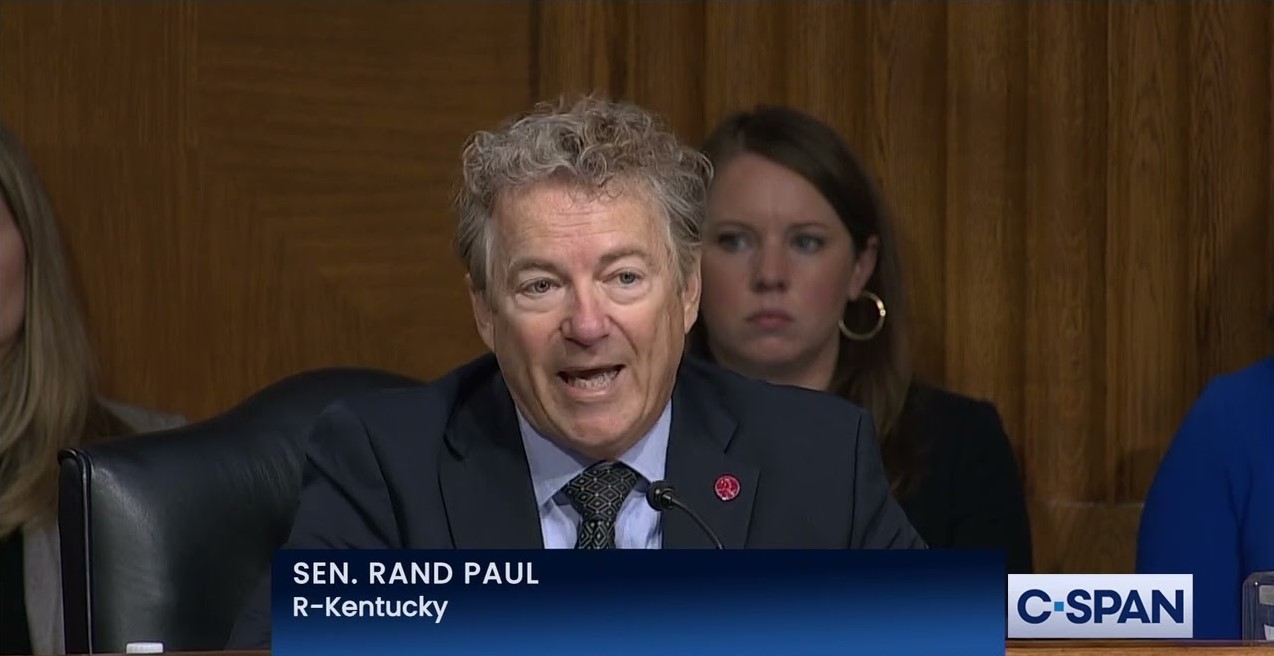Senator Rand Paul is set to take on a powerful new role as the incoming chair of the Senate Homeland Security and Governmental Affairs Committee, a position that will elevate the Kentucky Republican’s influence in Washington. Known for his libertarian leanings and sharp critiques of federal overreach, Paul’s chairmanship marks a significant shift as the GOP gears up to wield its majority in the Senate starting in January.
The Homeland Security Committee is one of the most influential in Congress, responsible for oversight of the Department of Homeland Security, cybersecurity policy, and disaster response. Paul’s new role will give him a substantial platform to push for increased government accountability and transparency — issues he has championed throughout his career. “I chose to chair this committee over another because I believe that, for the health of our republic, Congress must stand up once again for its constitutional role,” Paul told The New York Post. “This committee’s mission of oversight and investigations is critical to Congress reasserting itself.”
A key focus for Paul will be investigating the origins of the pandemic, an issue he has pursued relentlessly. He expressed optimism about working with a more cooperative administration, particularly in securing transparency from the Department of Health and Human Services and the National Institutes of Health.
Paul has long argued that dangerous gain-of-function research could have contributed to the virus’s origins, and he has been outspoken about the government’s attempts to suppress information. Paul stated that the biggest item in this potential coverup is that they’ve known about the research for years. “The idea that the government would pre-emptively be telling people not to publish things, to me, is horrendous.”
Throughout the pandemic, Paul made headlines for his fiery exchanges with Dr. Anthony Fauci, challenging federal mask mandates and vaccine requirements. His skepticism resonated with many Americans who were frustrated by strict pandemic policies, though it also drew criticism from those who believed he undermined public health efforts. Paul’s grilling of Fauci during Senate hearings became a defining feature of his public persona, especially as he advocated for the lab leak theory, suggesting the virus may have originated from a lab.
Paul’s chairmanship also signals a tougher stance on immigration. He is urging President-elect Trump to reinstate the “Remain in Mexico” policy, which required asylum seekers to wait on the southern side of the border while their cases were processed. “Most people don’t understand, myself included, why, if you’re illegally coming across a river in a boat or walking, you’re not just deposited back on the other side,” he told The Post.
Rand Paul’s leadership on the committee is likely to shake up the status quo, bringing his trademark skepticism and non-interventionist philosophy to the forefront of national policy debates. As he puts it, the investigations and oversight are just beginning: “We’re just scratching at the tip of the iceberg,” Paul said. With a Republican majority and a renewed focus on transparency, Paul is poised to make his mark in a big way, taking on federal agencies and shining a light on government practices he believes have long been kept in the shadows.


Leave a Comment